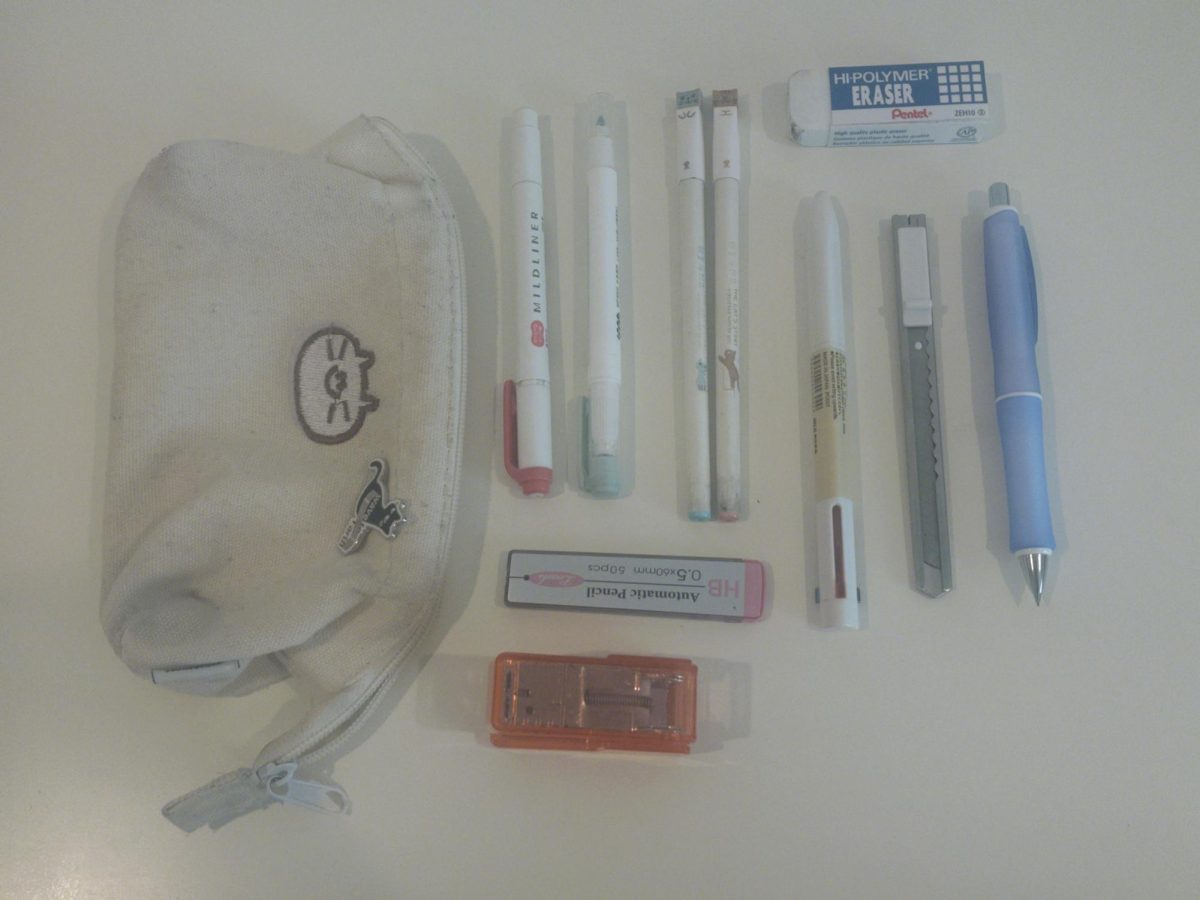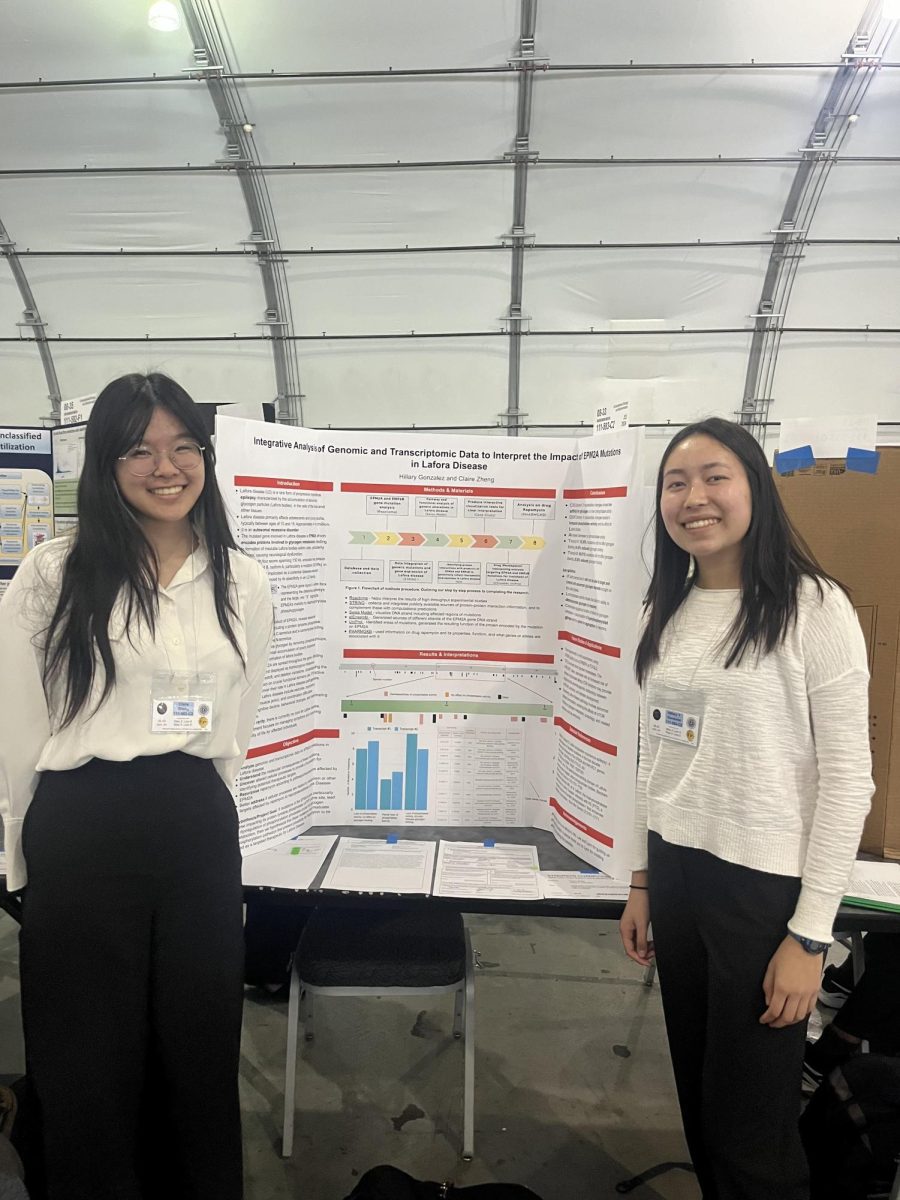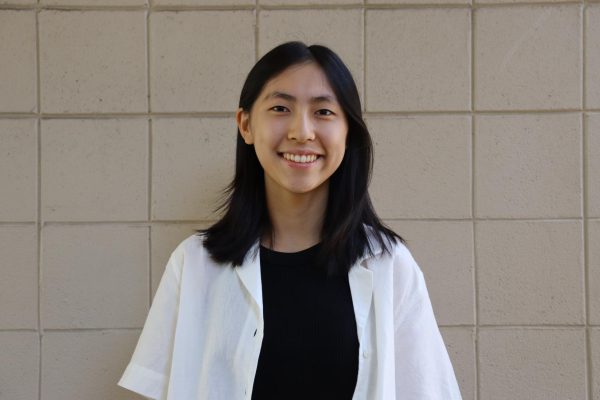Last year, seniors Hillary Gonzalez and Claire Zheng presented their data on the mutators of Lafora disease (LD), a form of progressive myoclonus epilepsy, at the Synopsys Science Fair.
Due to a lack of research on LD, the two decided to look into the impact of mutations and treatment options. They spent weeks using online visualizer platforms and scientific literature to pull quantitative data from the case studies.
Gonzalez and Zheng, who were members of the Advanced Science Research Continuation Club (ASR-C) then for two years, utilized the club’s resources to help guide them through the application process for Synopsys and provide valuable feedback from former participants in the fair.
The club was founded in the 2023-24 school year by Class of ‘24 alumnus Lynn Dai. Currently, the ASR-C officer team consists of co-presidents seniors Gonzalez and Amy Pan, junior vice president Ella Li, senior secretary Amy Luo and junior treasurer Viki Toram along with roughly 30 members.
Previously, Los Gatos High offered Advanced Science Research as a class. However, due to overwhelming enrollment and the inability to mentor many students effectively, the class was discontinued in 2023. After this, students found it difficult to begin their own projects without the guidance and mentorship provided by the class.
The ASR-C club offers a similar experience, but specifically guides students applying to the Synopsys Science Fair. But without a dedicated class period, students have less time to work on their research and are responsible for doing all experiments on their own.
In addition, when it was a class, the elective was meant to teach students good science and engineering research and practices rather than successfully compete at a science fair. Synopsys served more as a “checkpoint” throughout the year rather than the ultimate goal.
Typically, meetings cover the steps of the application process, such as brainstorming, narrowing down research ideas and giving individual feedback. Members can ask the officers questions and discuss their plans.
Science teacher Jennifer Lee, the club’s adviser, made it mandatory for any students participating in Synopsys to take part in the club to make sure everyone gets the logistics and revision process done correctly. However, the club is still mostly student-led by its officers. The club also changed from two meetings within a week every other week to once biweekly.
Students have full rein over which topic they’d like to research; however, because of lesser access to scientific equipment, Lee said there has been an increasing number of computer science or engineering projects rather than biology or chemistry-related ones.
Still, the club hopes to get as many students interested in participating in Synopsys as possible to compete and learn to conduct scientific research successfully. Because ASR-C helps build lifetime skills, the projects are ongoing and follow a process taught in the club.
“I’m trying to offer an avenue for students to work with other like-minded peers and have a way to showcase their work,” Lee said. “I would love for more students to use it as an opportunity to divide into new projects and ideas.”




























